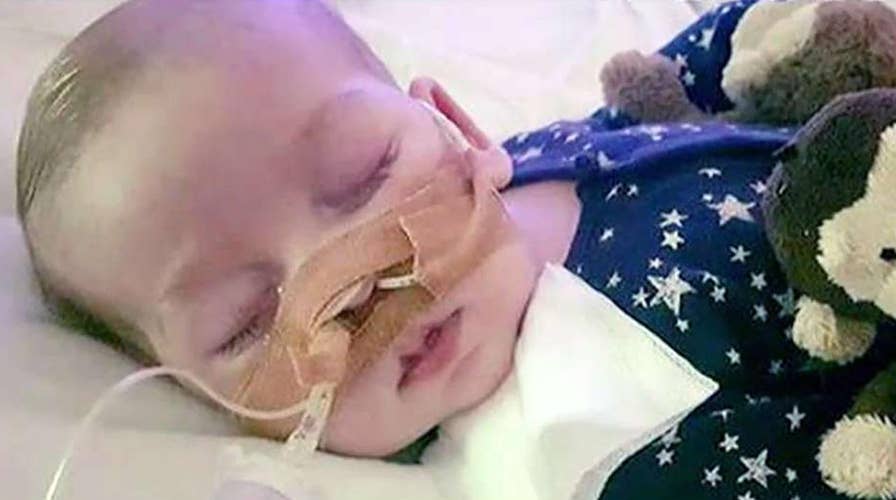Trump to 'confront' May over infant Charlie Gard
Former speech writer for George W. Bush discusses the G-20 summit
Charlie Gard is an innocent 11-month-old who was born with a rare genetic disease that is costly to treat. Because of that, he will now be allowed to die.
Although he lives in the U.K., Charlie’s case is not irrelevant to Americans. While frustrating and difficult, this is the reality of big government and socialized medicine. When the government becomes the ultimate decision maker, the rights of the individual are secondary. Our Founders believed that rights are endowed by God and can, therefore, only be taken away by God or by individual forfeiture. They knew that everything given by the government could also be taken by the government and, thus, designed a Constitution and system of government to protect the individual from the state.
American medicine and technology is among the most cutting edge in the world, but a socialized, single-payer health care structure, like that in the U.K., is not driven by research and cure, but profit. In 1999, the Brits established the National Institute for Health and Care Excellence (NICE). According to their website, NICE is, “a special health authority, to reduce variation in the availability and quality of NHS treatments and care.” Basically, NICE unilaterally decides what treatments are profitable and which ones are, in their view, a waste of government money.
Throwing this responsibility on one entity grossly overestimates the judgment of current science. In the 20th century, contracting smallpox was a death sentence, but in 1980, the World Health Organization declared smallpox eradicated. We wouldn’t have modern medicine if not for scientists who tackled these “incurable” diseases and brave individuals who voluntarily joined clinical trials. Research thrives in a free market system, because it must have the freedom to make mistakes in order to develop cures.
In the U.S., we do have the relative freedom to pursue alternative treatments and research cures. However, a small, yet controversial provision of ObamaCare, called the Independent Payment Advisory Board (IPAB), is moving us further away from a free market based health care system and is shoving us in the direction of a single-payer system.
IPAB was modeled after the British NICE and is an essentially unchecked, unprecedented, rationing board of 15 unelected bureaucrats aimed at controlling Medicare costs. Although legally IPAB cannot “ration” care, it does have the authority to control prices. IPAB can choose to drive the Medicare payments for any service so low that it no longer becomes possible for doctors to offer this service to Medicare patients. In theory, Medicare would still pay for a range of treatments, but in practice, for those who depend solely on Medicare, some services would be priced out, and voila, we have rationing.
IPAB’s recommendations will have the force of law unless they are countered by a 2/3 majority in the Senate, and the Senate can only weigh in if Congress’ total Medicare expenditures do not exceed IPAB’s recommended levels. The drafters of ObamaCare did not trust the people or their elected representatives to sustain a system that relies on the rationing of care and, thus, sought to isolate the Board from Congressional oversight and the normal checks and balances of the legislative process. As if this weren’t terrifying enough, ObamaCare exempts IPAB recommendations from either administrative or judicial review.
In 2011, then-President Obama not only defended IPAB, but argued for its price control expansion into private markets as well. IPAB was his best effort at pushing the U.S. into a socialized, single-payer system. Congress is now in the limited window of opportunity to repeal IPAB, but must act by August 15, or IPAB is permanent and can never be repealed.
IPAB is an unprecedented concession of congressional power and allowing IPAB to take effect could result in further unconstitutional delegation of congressional authority down the road. We cannot leave the care needed by some of the sickest and highest risk patients in the nation in the hands of 15 bureaucrats. Health care choices should be made by individuals in consultation with their doctors and not by the government.
We should heed Charlie’s case as an example of gross government overreach and repeal IPAB immediately.









































